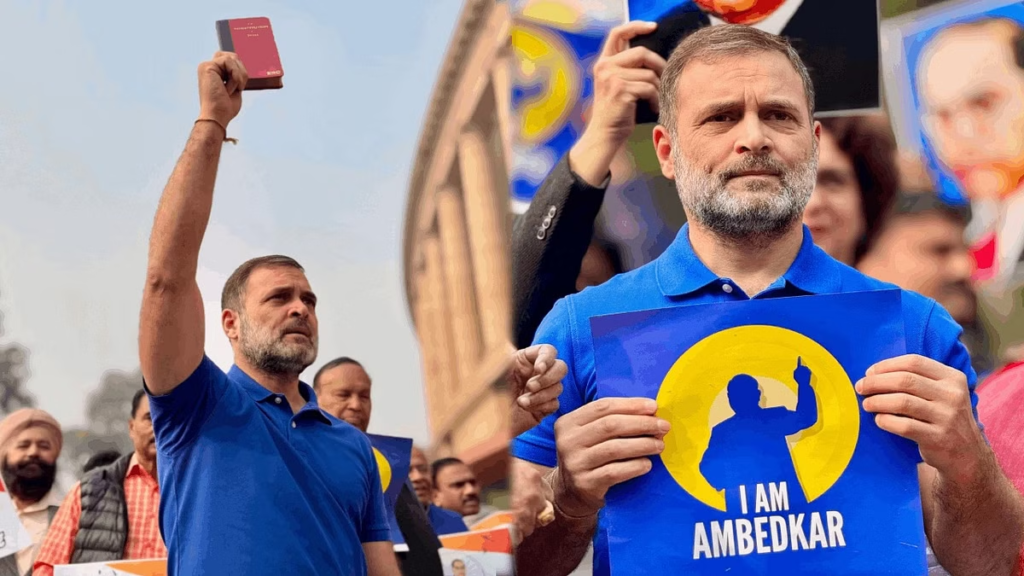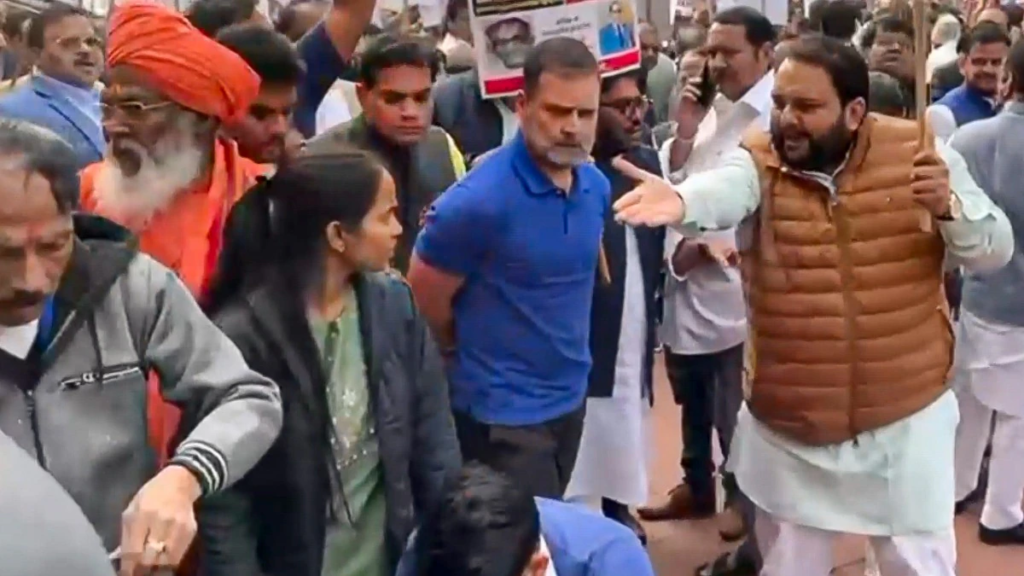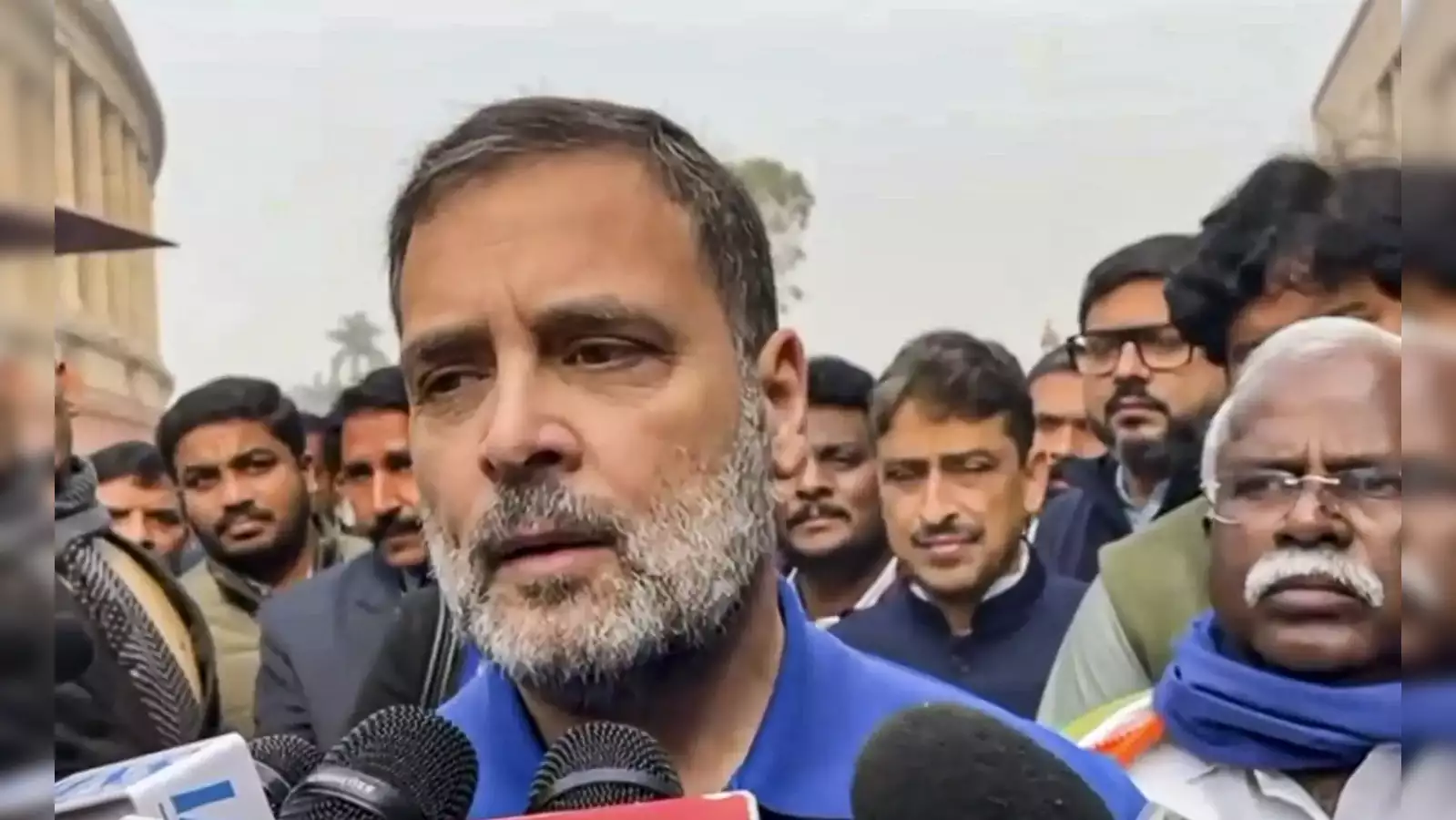The political corridors of India were abuzz with controversy after the Delhi Police registered an FIR against Rahul Gandhi following a scuffle in the Parliament premises.
This incident, which resulted in injuries to two Bharatiya Janata Party (BJP) MPs, has added another layer of tension to the already polarized political landscape. Both parties, the BJP and the Congress, have accused each other of misconduct, triggering a war of words and legal actions.
The FIR and Allegations Against Rahul Gandhi
On Thursday, the Delhi Police registered an FIR against Rahul Gandhi under several sections of the Indian Penal Code, including those related to grievous hurt, criminal intimidation, and endangering personal safety.
The FIR was filed at the Parliament Street Police Station based on a complaint lodged by BJP leaders. The complainants accused Gandhi of “physical assault and incitement,” demanding stringent action under serious charges, including an attempt to murder.
BJP MPs Hemang Joshi, Pratap Sarangi, and Mukesh Rajput alleged that Gandhi’s actions led to injuries during a heated altercation in the Parliament complex.
Read : Gautam Adani Must Be Arrested Today: Rahul Gandhi
According to the BJP, the scuffle occurred during a protest staged by members of the NDA and INDIA bloc. Sarangi and Rajput, reportedly pushed by Gandhi, sustained significant head injuries and were admitted to Ram Manohar Lohia Hospital for treatment.
Read : ‘Will Become Godse If He Comes To Odisha’: Man Threatening To Kill Rahul Gandhi
Union Minister Shivraj Singh Chouhan condemned Gandhi’s behavior, calling it “indecent, impudent, and goondagardi” (hooliganism). The BJP has taken a firm stance, accusing the Congress leader of undermining the sanctity of the Parliament with his alleged actions.
Counter-Allegations by Congress
The Congress party has refuted the allegations, claiming that it was BJP leaders who initiated the scuffle. Congress leaders filed a counter-complaint at the Parliament Street Police Station, accusing BJP MPs of misbehavior towards their party president, Mallikarjun Kharge. They demanded an FIR under sections pertaining to assault and grievous hurt against the BJP members involved.

Rahul Gandhi, addressing the media, rejected the accusations and alleged that BJP MPs attempted to block his entry into the Parliament. He criticized the ruling party for trying to divert public attention from critical issues, such as allegations against the Adani Group and its links to the Prime Minister.
“The Home Minister should resign and apologize. This is an attempt to shift focus from the Adani case being investigated in the US,” Gandhi stated. His remarks highlighted the ongoing political friction over corporate governance issues and the government’s reluctance to allow discussions on them.
The Broader Political Implications
This incident has escalated the hostilities between the ruling NDA and the opposition INDIA bloc. While the BJP has framed the altercation as an example of Rahul Gandhi’s alleged unruly behavior, the Congress sees it as a calculated move to tarnish its leader’s image.
The BJP’s strategy appears aimed at consolidating its narrative that the Congress and its leaders are disruptive and unfit for governance. On the other hand, the Congress has sought to portray itself as a victim of political vendetta, accusing the ruling party of authoritarianism.

For the public, such incidents raise questions about the decorum and accountability of elected representatives. Parliament, a space meant for debate and policy-making, has increasingly become a battleground for personal and party rivalries. The scuffle has also sparked debates on the necessity of impartial investigations to uphold the credibility of the legislative process.
The Need for Resolution
As both parties escalate their accusations, the incident underscores the need for calm and constructive dialogue in Indian politics. While legal proceedings may provide clarity on the events that transpired, the damage to the parliamentary ethos is evident.
Moving forward, political leaders must prioritize restoring public trust by ensuring accountability and maintaining decorum within the country’s highest legislative body. The focus should shift from confrontations to addressing pressing national issues, fostering unity, and strengthening democratic values.

